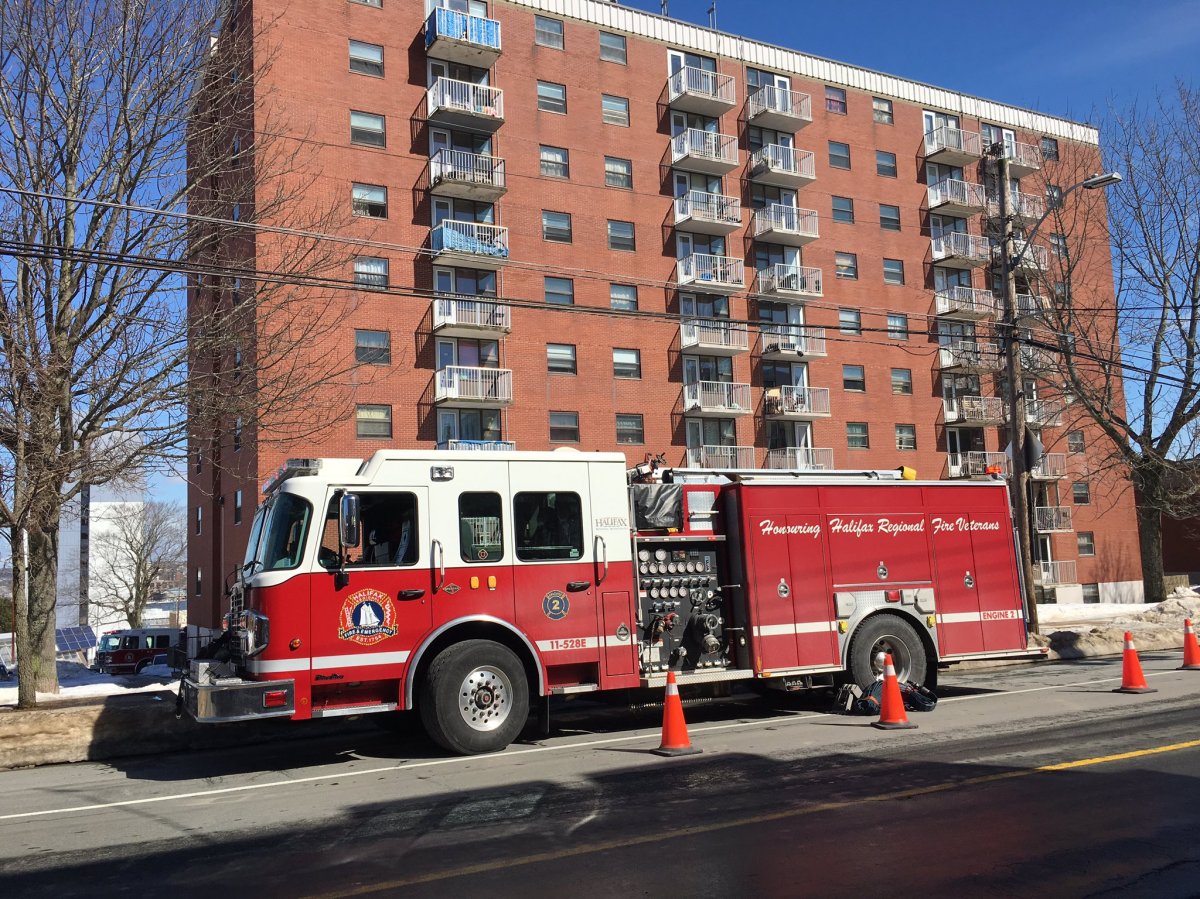Firefighters in Halifax are reminding the public to “create appropriate social distancing” when crews are on scene responding to alarms to help keep everyone safe during the COVID-19 outbreak.

In a message on Twitter, the Halifax Professional Firefighters IAFF Local 268, the union representing firefighters in Halifax, implored residents to not approach fire crews, and keep clear of walkways, stairs and elevators.
Brendan Meagher, president of the Halifax Professional Firefighters, told Global News numerous fire officers have expressed concerns about being approached by people at calls, and being unable to establish or maintain appropriate social distancing when arriving at a scene.
READ MORE: Coronavirus: Truro Police issue 2 tickets over Emergency Management violations
He said firefighters want people to observe the precautions adopted during the outbreak to help keep themselves and firefighters safe.
Meagher said he’s hoping the reminder will help prevent the spread of COVID-19 between residents who may be temporarily out of their homes due to a fire or alarm.

Get weekly health news
He also said firefighters want to avoid coming into contact with people who may be infected.

He suggested people use their voices or wave at firefighters to get their attention if they may have information that is important to a fire response.
Meagher said the efficiency of the response will be impacted if people do not respect the precautions.
“We know that most people will comply once they’re aware,” he began. “But we see that people are losing the contentiousness of maintaining the appropriate distance when they hear the alarm sounding.
“There’s a sense of concern, and sometimes alarms are distracting and can help people lose track of all the relevant precautions.”
READ MORE: N.S. RCMP officers threatened with coronavirus contamination
Questions about COVID-19? Here are some things you need to know:
Health officials caution against all international travel. Returning travellers are legally obligated to self-isolate for 14 days, beginning March 26, in case they develop symptoms and to prevent spreading the virus to others. Some provinces and territories have also implemented additional recommendations or enforcement measures to ensure those returning to the area self-isolate.
Symptoms can include fever, cough and difficulty breathing — very similar to a cold or flu. Some people can develop a more severe illness. People most at risk of this include older adults and people with severe chronic medical conditions like heart, lung or kidney disease. If you develop symptoms, contact public health authorities.
To prevent the virus from spreading, experts recommend frequent handwashing and coughing into your sleeve. They also recommend minimizing contact with others, staying home as much as possible and maintaining a distance of two metres from other people if you go out.
For full COVID-19 coverage from Global News, click here.









Comments